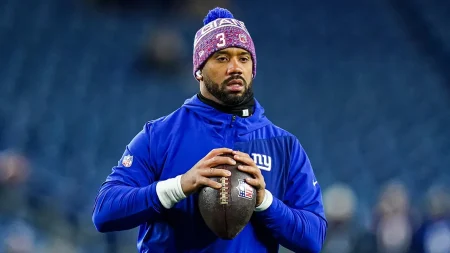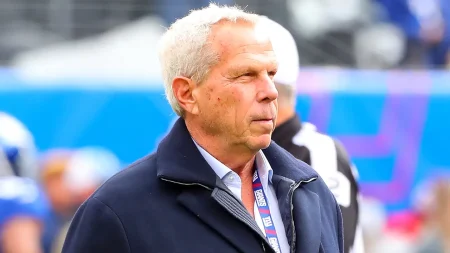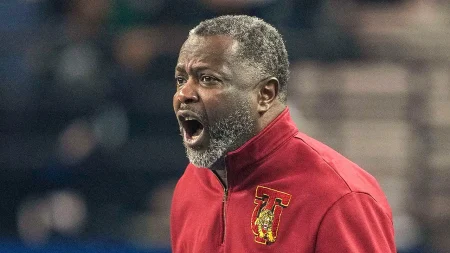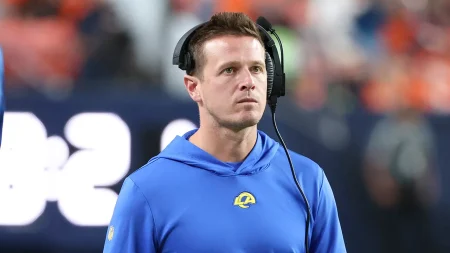Paragraph 1: The Changing Landscape of College Sports and Larrañaga’s Departure
The collegiate sports landscape has undergone a seismic shift in recent years, with the advent of Name, Image, and Likeness (NIL) deals and the increasingly fluid transfer portal dramatically altering the dynamics of recruiting, player retention, and team management. These changes have placed immense pressure on coaches, forcing them to adapt to a new era of player empowerment and financial considerations. This pressure culminated in the unexpected resignation of Jim Larrañaga, the winningest coach in Miami men’s basketball history, midway through the 2023-24 season. Larrañaga, a veteran coach with a distinguished career spanning over five decades, cited exhaustion stemming from navigating the complexities of NIL and the transfer portal as a primary reason for his departure.
Paragraph 2: The NIL Era and its Impact on Coaching
The introduction of NIL legislation in 2021 revolutionized college sports, permitting student-athletes to profit from their personal brand and marketability. While offering athletes new opportunities, NIL has also created a competitive marketplace where financial inducements can influence player decisions, including transfers and recruitment. Coaches now face the added responsibility of managing NIL deals, ensuring compliance with regulations, and balancing the financial aspects with the traditional values of amateur athletics. This new layer of complexity has added to the already demanding workload of coaches, requiring them to develop new skills and strategies to navigate the NIL landscape effectively.
Paragraph 3: The Transfer Portal and the Erosion of Team Stability
The transfer portal, which allows athletes to switch schools more easily, has further disrupted the traditional college sports model. While providing athletes with greater autonomy, the portal has contributed to roster instability and increased player movement. Coaches face the constant challenge of retaining their players while also recruiting replacements from the portal, a dynamic that demands continuous effort and creates uncertainty in team building. This constant flux can undermine team cohesion and long-term planning, adding another layer of complexity to a coach’s role.
Paragraph 4: Larrañaga’s Legacy at Miami and the Weight of Expectations
Larrañaga’s tenure at Miami was marked by significant achievements, including six NCAA Tournament appearances, four Sweet Sixteen runs, the program’s first Elite Eight appearance in 2022, and a historic Final Four berth in 2023. He also led the Hurricanes to an ACC tournament title in 2013. These accomplishments established him as a highly successful coach and raised expectations for the program. The pressure to maintain this level of success, coupled with the challenges presented by NIL and the transfer portal, likely contributed to Larrañaga’s decision to step down.
Paragraph 5: The Challenges of a Transitioning Program and the Search for a Successor
Larrañaga’s departure left the Miami program in a state of transition, with assistant coach Bill Courtney appointed as interim head coach. The search for a permanent replacement will be crucial for the future of Miami basketball. The new coach will inherit a program with a strong recent history but also face the daunting task of navigating the evolving landscape of college sports, including the challenges presented by NIL and the transfer portal. The ability to adapt to these changes and build a competitive program in this new era will be essential for the next head coach’s success.
Paragraph 6: The Broader Implications for College Sports and the Future of Coaching
Larrañaga’s resignation underscores the significant changes occurring in college sports and the increasing demands placed on coaches. The introduction of NIL and the transfer portal has fundamentally altered the dynamics of the game, requiring coaches to adapt and develop new strategies for player management and program building. The long-term impact of these changes remains to be seen, but it is clear that the role of the college coach has become increasingly complex and challenging, requiring a new set of skills and a greater level of adaptability to thrive in this evolving environment. The ability to navigate these changes effectively will likely be a defining factor in the success of college coaches in the years to come.















